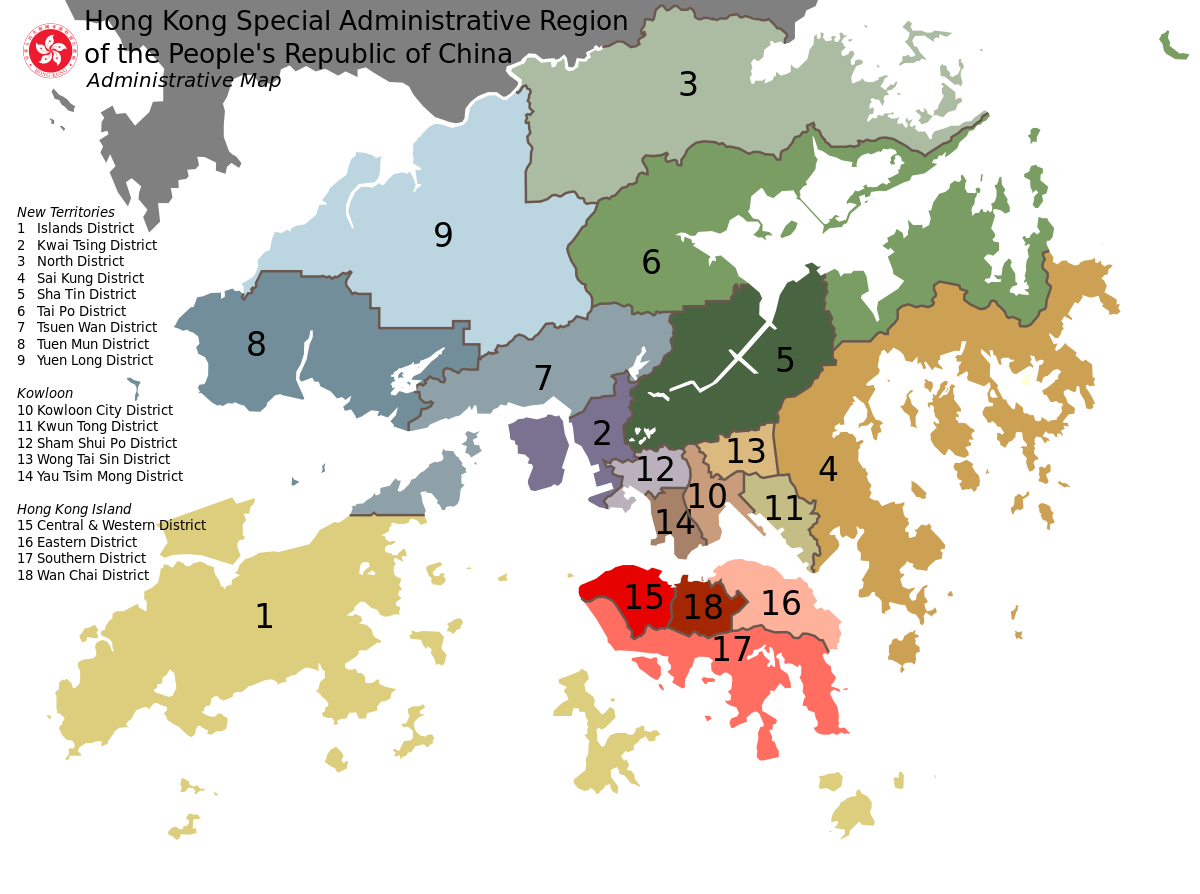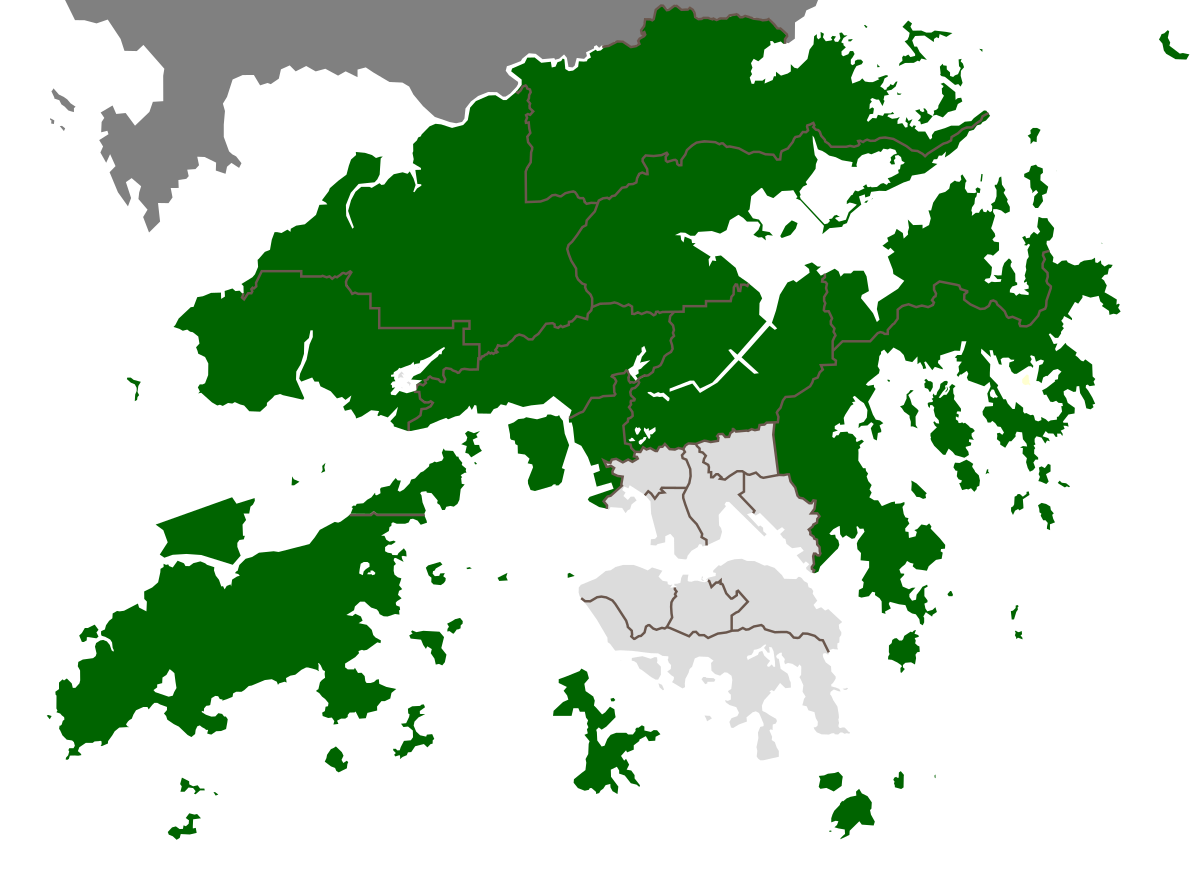4 Factors for People to Rent an Apartment in HK
Housing in Hong Kong:
An overview of the home flat market
Cost of living in Hong Kong is fairly high especially for expats entrepreneurship and employees, housing rentals in Hong Kong are always cited as “one of the least affordable metropolitan worldwide”. In a city awarded as the world freest economy, regular people spending HKD 5 million on a shoebox home of 400 square feet does make sense. A major reason behind Hong Kong’s sky-high real estate price is, undoubtedly, the serious supply shortage of suitable land to build flats. To cope with the demand of housing, Hong Kong has developed vertically and densely, most of the locals lives in apartment towers.
Hong Kong’s population shows a large diversity of wealth, so are the people’s conditions of living vary from small, windowless rooms with a large number of occupants to spacious, luxury mansions. Hong Kong urban area is sometimes criticized as overly developed, your urban accommodations is impossible to be surrounded by green space. However, about three-quarters of Hong Kong land, out of 1,092 km2, is country parks and specially conserved land, you can relax yourself in natural environment during your holidays within an hours of travelling from you home.
Finding a good place to live in Hong Kong is not easy. It is important to write down your requirements in advance before you start the tough journey of looking for somewhere to live. Unless you have unlimited budget, sorting your list of requirement by ‘must-haves’ and ‘nice-to-haves’ since comparison are inevitable and it helps your real estate agents get something you like.
Size, location, quality and rental price are always the 4 factors of consideration when people are looking for renting an apartment. Here are some useful notes for expats home-seeker in Hong Kong:
-
- Size
- The commonly used unit of measurement is square feet (sq.ft.) where one square metre equals 10.762 square feet.
- Gloss Floor Area of an apartment is vaguely defined and varies to developers, the measurement includes not only the thickness of the wall of both interior and exterior, but also the communal areas such as the balcony, public corridors and green facility.
- Saleable Floor Area excludes some parts of an apartment so that it is a percentage of GFA. It is an improved measurement to reflect the size of apartments and must be exposed in all the documents of property ownership transaction.
- Location
- Regarding to proximity to work and schools, Most of the local people hate to spend more than 1 hours per trip on travelling between their place of working and home.
- Due to the fact than Hong Kong is not a mega metropolitan in size, buildings which are within 10 minutes reach to MTR stations are coined as “easily to access to public transport”
- neighbourhood amenities, such as doctors, hospitals, supermarkets and fitness centres are usually in reasonalbe proximity when you are not living in rural area
- Some expats prefer surrounding by clubs, restaurants and bars since Hong Kong’s nightlife is vivid.
- Quality
- Buildings which is over 30 years old are considered ‘old buildings’ in Hong Kong.
- Those “new” residential block towers come with common facilities such as club house for recreation of residents. However, these facilities usually require paid membership and/or entrance fee.
- Apartments on the higher floors command a premium because of better air flow and less noise.
- Apartments with a sea view (abbr to ‘S/V’) are usually more expensive than those with a mountain view (‘M/V’) and garden view (‘G/V’). Unless the building is suited in the sea front, it is expected that the S/V is partial blocked by surrounding buildings.
- If you have or plan to have animals and you are going to move in to a high-rise, you may not be allowed to have pets because the owners’ corporation may not allow it.
- Rental Prices
- Land lord of apartment in single-block residential tower are more negotiable than those in an residential estates.
- Finally, it depends on all of the above factors plus some subjective preference such as surrounding facilities, layout of the apartment, people in the community, etc.
- Any rent below HK$5,000 is surely going to be a bedsit and/or in an run-down building. (Except public housing and government subsidized housing which are exclusively the welfare for permanent resident)
- Quoted rents are on a per month basis.
- Size
When thinking about location, take into consideration of ease to access public transport or acquiring of your private vehicle if you are going to be commuting or taking kids to school. You may also take the security and safety of both the building and the community into account. It is because your choices of lifestyle must make a difference, it is because it determine how you spend your leisure time and will impact on where you will be most comfortable living.
A property for rent advertisement may only stated its sizes where are measured in square feet of Gloss Floor Area and it includes the terrace, car parking and an allowance for common areas of the building like the foyer, elevator area and stairwells.
The real estate agents in Hong Kong are generally helpful and they are highly accessible, you should find satisfied with their all-round services. The commission fee you have to paid is applicable after the tenancy contact are confirmed.
Once you have found the right home to live in Hong Kong, you are highly advised to sign a rental contract. You should make sure that you understand what you sign and all liabilities that go along with the rental contract.
We usually refer the rental contract as the lease or the tenancy agreement which is co-signed by the tenant, the landlord and the estate agency (if used).
After your lease are confirmed and deposit of 1 to 3 months rent to landlord is also settled, the lease should be submitted to Inland Revenue Department for being stamped within 30 days from its date of effect. Meanwhile, you will be ready to move into your new Hong Kong domicile. Your should arrange your new home utilities – electricity, gas and water – at least a couple of days in advance of moving in by contacting the respective suppliers.
In most of the cost, you are transferring the utilities from a previous tenant, so you have to make sure those meters are read to avoid unnecessary charge.
Types of housing for rent in Hong Kong:
A range of choice
Although a vast majority of locals live in high rise, you can find a large variety of choice and prices can vary greatly depending on the location, quality and size of a rented property. Here are the commonly affordable home for expats employees and entrepreneurship.
-
Chinese-style Old Apartment Blocks (Tung Lau)
“HK ShanghaiStreet CantoneseVerandahTypePrewarShophouses” by Chong Fat – Own work (Self took photo). Licensed under Public Domain via Wikimedia Commons.Most of them which are still habitable were built in 1950s to 1960s are 2 to 3 stories buildings, scattered along the harbourside of Hong Kong Island and Kowloon, these apartments enjoy very high Saleable Floor Area to Gloss Floor Area ratio and can range from 1000 to 3000 square feet. These buildings lack elevator and resident’s facilities. If you like to immerse yourself into old Hong Kong style, this must be your first choice.
-
Old Apartment Blocks
- Apartments in “old” towers often enjoy high Saleable Floor Area to Gloss Floor Area ratio (i.e. higher space efficiency) and can range from 800 to 1500 square feet, they are usually 10 to 20 stories buildings. They are less likely to have facilities like swimming pools, shuttles or clubhouses, and rents start at HK$25,000/month.
-
New Apartment Blocks
- In the 1990s, Hong Kong residents begin to ask for upgrade of living standard and a character home. A Those new apartment blocks equips with modern bathrooms and kitchen fittings, a wide range of facilities such as clubs house with gymnastics, swimming pool, and tennis courts.
-
Residential Complex
- These complexes usually consist of several 50-story-high residential buildings and a huge shopping mall with supermarkets, a variety of restaurants, playgroups, banks, and parking space. Management fees for these modern complexes are usually high.
-
Studio Flats (Business-focus)
- Scattered within the industrial buildings and old commercial building, studio flats are not a kind of home but a place of business. It consists of single room which contains workspace, sleeping and bathroom facilities but lacks kitchen. It is an ideal place for one or two budding entrepreneurship.
-
Studio Flats (Residential-focus)
- They are the subdivided single-room home of an apartment in those old apartment blocks with refurbished interior facilities, perfect for one to two people.
-
Sharing of flat
- If you feel comfortable to live with other people and happy to save cost on renting, either sharing your flat with other or find someone to share your flat is a good choice. Flat sharing are advertised in asiaXPAT (Hong Kong) http://hongkong.asiaxpat.com/property/share-flats/ and Just Landed (Hong Kong) https://housing.justlanded.com/en/Hong-Kong/Flatshare and GeoExpat (Hong Kong) https://hongkong.geoexpat.com/classifieds/apartments/shared-flats-available
-
Serviced Apartments
- If you are going to visit Hong Kong on a temporary basis or need a serviced home before your find your place to move in, to rent a serviced apartment in alternative to hotels should be considered when you have to stay in Hong Kong for more than a month is a ground. In Hong Kong, the choice of serviced apartment is abundant, some serviced apartments are attached to hotels, some of them are operating under group management, and also some of them is a combination of maid services and ordinary home flat tenement contract. Choice of locations are located in upmarket complexes and in commercial and business districts. Rental periods can be as short as 2 weeks, discount for long term contract is usually available.
-
Penthouse
- Typically two or more interconnected floors in a luxury apartment block with the roof garden.
-
Mansions
- You can find spacious mansions with gardens and long driveways on the peak of Hong Kong Island and Kowloon. For most people, mansions are out of reach as monthly rents are starting at HK$250,000 and are much more in most cases. In the New Territories, newer buildings are popping up in the rural area, these houses are 3-stories high and are typically owned and built by the native Chinese locals who owned the land. Each floor of the house is ranted out to a family because the rent are more reasonable than in urban, and more spacious.
Where to live in Hong Kong?
Choosing the right community to take part.
The part in Hong Kong where you decide to living in for the long-term is the balance of your income, personal needs and family needs. Hong Kong Island, Kowloon and the New Territories are the three main parts that make up Hong Kong.

“Map of Hong Kong 18 Districts en” by User:Moddlyg – File:Map of Hong Kong 18 Districts zh.svg. Licensed under CC BY-SA 3.0 via Wikimedia Commons.
For administrative and political purpose, Hong Kong government has divided Hong Kong into 18 districts:
- Hong Kong Island
- Kowloon
- New Territories
Hong Kong Island

“Hong Kong HK Island” by ZHModdlygTalk+ – Own work. Licensed under CC BY-SA 3.0 via Wikimedia Commons.
Hong Kong Island, namely The Island is a tiny Island of merely 80km2, is the heart of Hong Kong; The Central area on The Island is the historical, political and economic centre of Hong Kong, it is also the most famous because of its skyline of buildings bearing the names of worldwide corporations on their roof.
The Island is praised with reliable and affordable public transport system e,g. Mass Transit Railway (MTR) and highways along the coastal of Victoria Harbour, travelling in The Island is easy experience without the need of private vehicles. Property price in Hong Kong is relatively expensive, which mean a relatively high cost of living in The Island.
When you move towards the southern and eastern area of Hong Kong Island, the feel of commence thins out and becomes more residential. You can find accommodation in these neighbourhoods varies from old Hong Kong style low-rise towers scattered in the urban area to spacious apartments and villa complexes surrounding the mid-level and the southern coastal line of The Instead.
Many expats prefer to live on or near Hong Kong Island because there are the ‘western Hong Kong’ area in the city.
Kowloon

“Hong Kong Kowloon” by ZHModdlygTalk+ – Own work. Licensed under CC BY-SA 3.0 via Wikimedia Commons.
Consider living in Kowloon or the New Territories. Prices tend to be more affordable as you move away from the Hong Kong Island. The better value for money in terms of accommodation is not equal to inconvenience, particularly the well development of mass transportation system connecting with the business districts on Hong Kong Island and the migration of office from Hong Kong Island to Kowloon.
In Kowloon, Mongkok region is the most densely populated places in the world, so it is as busy as Hong Kong Island itself.
The New Territories

“Hong Kong New Territories” by ZHModdlygTalk+ – Own work. Licensed under CC BY-SA 3.0 via Wikimedia Commons.
The New Territories take up the majority of land in Hong Kong, and it consists of many different regions and providing much more affordable accommodation especially in the newly developed town and rural area. The rural part of Hong Kong is typically very remote, so that the residents may consider to own a vehicle.
Advice for tenant-to-be:
How to find accommodation in Hong Kong
Seeking help from agency or D.I.Y. are also possible:
Real estate agents in Hong Kong
Most expats looking for accommodation in Hong Kong use local estate agents services. It is in parallel to the fact many landlords don’t like to deal directly with tenants or negotiation process about rents and other terms.
You must be surprise that there are plenty of real estate agents in Hong Kong: from agencies run by big well-known franchises, long-established local corporations to smaller, privately running companies, they are popular like convenient stores.
Once you know where you want to live, the best channel for valuable information of surrounding properties are those estate agents in the neighborhood. They know specific buildings in the area that other residents have liked, offer appropriate advice about the community and the most important thing is to find out what you are likely to get for your budget.
You can register your details and requirement (be specific in it to save time) of new home to multiply agencies on the same street, registry will not cost you a penny. A estate agent will charge you when the rental contact is confirmed. Usually, the agency firm demand at least 50% of your average monthly rental expense as commission from the tenant, and also another 50% of than from the landlord.
However, if you have already visited one flat by the lead of an estate agency and you prefer to complete the rental deal, you have to use this agency to arrange the leasing contract. Otherwise, this agency can ask you to pay for his supposed-to-be commission fee even you have used other agency to complete the deal unless the deal takes place more than 3 month after the on-site flat visiting.
Renting on your own
It’s absolutely legal that you skip estate agents and find the landlord to rent a property, but you need to be well prepared for the additional legal arrangement which will likely cause. The landlords of budget accommodation like studio flats and flat shares, or shorter than 1-year leasing contract in serviced apartments are more inclined to directly deal with tenants since landlords do not want to pay agency commissions. Unless you can seek locals to help or your landlords can speaks your language, it will be a difficulty task in the negotiation and signing of the lease agreement by yourself.
Fortunately, those popular expats websites e.g. offer classifieds for landlords to post details of their flats for rent and some of them allow tenants to post their needs of new home. Other than that, Square Foot is an good online directory of property for sales and for rent and it is worthy to check regularly but some of the property listing are managed by estate agency.
Entrepreneurship Relocation Services in Hong Kong
If you use an entrepreneurship relocation agent in Hong Kong (this is what AsiaBC is doing), your home will be properly arranged. The services of a relocation company can do includes arrangement of logistic company in packing and shipping your goods, estate agency in arranging of viewing of potential properties at your destination and negotiating the lease, arrangement of your immigration permits and, at least, offering face-to-face support in Hong Kong.
Guide to rental contracts in Hong Kong:
What to look out for
Whether if estate agency is used or not, a written rental contracts should be made between the landlord and the tenant.
General information
A home flat rental lease in Hong Kong is typically lasting for two years, with a break clause under which either or both sides are allowed to terminate the agreement prior to the lease expiry date with the provision of notice (written notice are recommended) sent to opposite party at least one month before the said termination date. If you are want to break the lease in advance of a year you probably required by the landlord to pay all of the remaining period.
To speedup the leasing process, a template of standard tenancy agreement which is prepared by the authority are deployed. Since it is common that landlords add their own clauses in the template to create a final lease contract, these special leasing terms include adding tenant’s liability on the upkeep of premise and taking out indemnity insurance, and prohibition of sub-letting, you should completely understand what you are signing.
If you want to take a look of the template of standard tenancy agreement, you can view the English and Traditional Chinese. (for reference only).
You can request all document involved are written in English, if it is not, you should seek trustworthy translation. Make sure you understand all binding clauses and liabilities (such as structural repairs). If something seems unclear or wrong, address this point immediately with your agent or your landlord.
Finally, you should use a lawyer to handle the tenancy agreement if you feel unsafe.
Management fees
In addition to rent, the landlord usually requires the tenant to pay ongoing management fees which cover the maintenance of communal facilities, cleaning and security service. All property in Hong Kong are also liable for government rates and rents, which are roughly 5% of the total annual rental, and charged quarterly. All these burdens, check carefully before you sign anything. You may need to pay these directly to the respective parties or to the landlord with rent.
When you are asking for a quotation of rent, the rent will either be stated either as ‘inclusive’ (all management and government rates and rents are settled by the landlord), or ‘exclusive’ (rates will be quoted separately).
For sub-letting apartment, the rent is usually “all inclusive”, which means utility fee is also included.
Deposit
1 month’s rent is often required as a holding deposit which is refundable as the first month’s rent at the moment the contract is being signed.
In addition, the landlord usually demands security deposit which is usually 2-3 months’ rent. The security deposit will be refunded if there is no breach of the contract terms – loss or damage (other than from normal wear and tear) of the property, the Landlord can deduct the total amount of the loss from the security deposit.
It is wise to ask the landlord issues a receipt of the deposits received. Usually the security deposit is returned within 14-30 working days after the contract termination.
Again, all the terms related to deposits must be stated in rental contract.
Signing the contract
The landlord / estate agency demand a copy of your Hong Kong Identity Card and your proof of employment to make the signature. Upon signature, two copies of the contract are sent to the Inland Revenue for official registration and are then returned to the landlord and the tenant. The IRD collects a stamp duty fee for this which is shared by you and your landlord.
Renewing the lease
To renew a lease, the landlord will send you a one month’s notice inquiring about your intentions.
Often that the same lease continues but the rent will be adjusted depending on the concurrent property market. In Hong Kong, none of the regulation about rent increases, so you should stay connected with the market conditions. Check with the agent/landlord about rent increases three months before expiry date of current rental. to avoid unpleasant surprises. If you cannot afford the raised rent and need to move out, that should give you enough time to find a new home.
In most cases, landlords incline to charge you more rent but will offer some sort of benefits like a period of free rent, bundling with some home appliances or furnishings, or fix up parts of the apartment.
For your interest, you should not hesitate to ask for extra benefits before signing the contract.
Illegal structures
If you are promised living space like a roof, balcony or storage rooms when you view the apartment, and then you cannot find them in your rental contract, chances are that the roof or additional space may be an ‘illegal structure’. If they are identified by government inspection and the landlord is asked to remove it, you risk losing this space without compensation.
Moving in:
Utilities and insurance
Supply of electricity, gas and water in Hong Kong is extremely reliable. To open an account you need to pay a deposit to the operators.
Electricity in Hong Kong
Electricity is provided by either one corporation as follows:
-
- Hongkong Electric Co. for Hong Kong Island and Lamma Island (Customer hotline: 2887 3411)
- China Light and Power Co. for Kowloon, the New Territories, Lantau and Cheung Chau (Customer hotline: 2678 2678).
Electricity bills are pay monthly. And the company will record your meter around every 30 days.
The residential-use voltage and frequency is 220V 50Hz, and the type of power plug and socket is IEC Plug Type G.
The process of changing the billing account owner is simple, once you have your rental contract confirmed, you can reach either on of the company to handle.
Gas
If you are moving to apartment block, your home is most likely linked to either the Towngas network (C.S. hotline: 2880 6988) or Shell liquefied petroleum gas network (Tel: 2435 8388). Older apartments, rural house especially those in parts of the New Territories and in the Outlying Islands, are not connected to the gas network. In this case, you will need to use bottled LPG, which you can ordered through telephone and get delivered.
Hong Kong gas market is operating by private companies. Gas bills are pay quarterly if you are the user of networked gas. You can report the gas meter anytime via telephone or website.
Water
The Water Supplies Department is a government department who takes part in every aspect of water supply in Hong Kong. Water bills are minimal in Hong Kong and are paid quarterly. For customer service, feel free to call 2824 5000.
The department will record your meter quarterly.
Household insurance
We highly recommend all tenants to take out an additional household insurance which covers not only your furniture and belongings against fire, theft, typhoons and burst pipes but also the loss and damage caused by any accident which are initiated from your apartment, so you are protect from financial shock. Most banks and insurance companies can give you an online quote for household insurance.
To get a precises understanding of the Hong Kong, we suggest reading the following information and statistics in the following:
-
- Rating and Valuation Department of The Government of the Hong Kong special Administrative Region (RVD, Gov of HKSAR)
- Centa-City Leading Index prepared by Centaline Property Agency Limited

![Asia Business Centre (Asia Business Centre (AsiaBC) [HK+SG Bank Account Opening / Company Formation / Company Secretary / Accounting & Tax])](https://asiabc.com.hk/wp-content/uploads/Blog-Banner-4-Factors-for-People-to-Rent-an-Apartment-1030x464.png)


![Asia Business Centre (Asia Business Centre (AsiaBC) [HK+SG Bank Account Opening / Company Formation / Company Secretary / Accounting & Tax])](https://asiabc.com.hk/wp-content/uploads/Blog-Banner-Guide-to-Languages-in-HK-80x80.png)
![Asia Business Centre (Asia Business Centre (AsiaBC) [HK+SG Bank Account Opening / Company Formation / Company Secretary / Accounting & Tax])](https://asiabc.com.hk/wp-content/uploads/Blog-Banner-Can-Startups-Open-Corporate-Bank-A_C-in-HK_-1-80x80.png)



